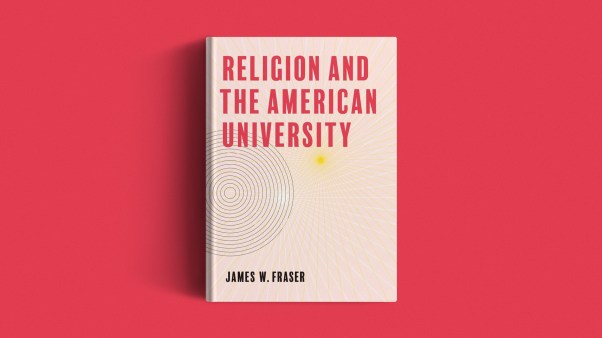The study of human persuasion has a long and noble heritage, reaching back at least as far as the ancient Greeks and Romans. For most of its history the subject was pursued under the banner of “rhetoric,” but in more recent times it has been studied by social scientists under such rubrics as “persuasion theory,” “attitude change,” and “social influence.”
The relation between secular views of persuasion and preaching is also of long standing. Christianity was conceived in a Jewish womb, and its first preachers, audiences, and modes of discourse were all Jewish. Yet the new faith was born into a world dominated by Greco-Roman influence and immediately began to take on some of the characteristics of its environment. One of the most obvious of the Church’s adaptations was its appropriation of what was then the crown of a liberal education, rhetoric, for its own use in preaching.
The sermon as we know it now was not what took place in the New Testament. Today’s sermon resembles the oratorical activity of the ancient Greeks and Romans more than the practice of the apostles, as almost any standard work on homiletics demonstrates. For example, in the classic work of John A. Broadus, On the Preparation and Delivery of Sermons, the discussion of how to construct and deliver sermons is much more indebted to the rhetorical forms of Aristotle and Cicero than to the practice of Peter and Paul. For other homiletical writers the debt may be more implicit, or it may be to a more modern set of theorists, but the dependence upon secular writers is present just the same.
This dependence is not necessarily bad. The apostles never intended to provide a comprehensive theory of homiletics. Our situation is not that of the New Testament preachers either culturally or chronologically, and we would be foolish to try to copy them to the letter. Moreover, the work of rhetoricians and persuasion theorists, many of whom were themselves preachers, abounds with wonderfully valuable insights into human communication. To the extent that we can use their work to make our proclamation more effective, we not only should but must do so.
But can we do it unquestioningly? One who did not was the Danish philosopher Sören Kierkegaard, whom evangelicals are increasingly coming to realize as less an ogre than they had thought (see, for example, the review of books on Kierkegaard in the June 9, 1972, issue of Christianity Today). Kierkegaard believed that secular theories of persuasion form an inadequate approach to preaching because the goals of rhetoric and preaching are very different. Instead, he advocated his own theory of “edifying discourse,” which he believed was more consonant with Christian goals.
Kierkegaard’s analysis at least raises an important question. The genesis of any theory of discourse must lie in the philosophy or theology that underlies it. Is it possible that some modern preaching practices are based upon secular theories of persuasion whose underlying assumptions are contrary to those of Christianity?
I am convinced that this is a question we need to be answering, and I would like to suggest a particularly troublesome area where we might begin. It has to do with the role of persuasion in preaching in general, and the goal of preaching in particular.
Secular theories of persuasion have always been designed to enable men to influence their fellow men more effectively; that is, they are avowedly instrumental, utilitarian, or goal-oriented. Responsible rhetoricians have seldom condoned sophistry or casuistry, of course, but their efforts have been frankly directed toward drawing forth particular decisions, attitudes, or behavior.
Significantly, homileticians tend to hold that the goal of the preacher is similar to that of the secular persuader, to elicit a desired response from the listener, and that it is quite proper to use a broad range of rhetorical techniques to achieve this goal. This assumption lies beneath much of the contemporary writing on homiletics. For example, one well-known homiletician writes: “Before the preacher understands the approach to be made to disbelieving audiences, he must first understand the sources through which people accept belief, so that he can organize his material in such a way as to gain the desired response.” And: “If a good talk made a good sermon the preacher’s lot would be an easier one. It is the fact that a sermon has to achieve a certain change of will that puts upon the preacher the double compulsion of knowing both the response he desires and the countless techniques which will help him achieve his goal. Persuasion becomes an art” (Ronald E. Sleeth, Persuasive Preaching, Harper, 1956, pp. 17, 45).
While we may grant that the secular persuader can proceed in this way, using his techniques to gain a particular response, are there not additional considerations for the preacher? One may ask whether the preacher should use any technique in an effort to induce the desired response from his audience—whether, in fact, gaining “the response he desires” should be the preacher’s goal at all. For is it not possible that having this goal increases the possibility that the results will be of man and not of God?
For the sake of illustration, let us consider an extreme example. In his book Hypnotism: Fact and Fiction, Frederick L. Marcuse reports a research study conducted at a large eastern university. The researchers attempted, through hypnotic suggestion, to induce a convinced and vocal atheist to become “religious.” The attempt was so successful that it had to be halted and all suggestion removed from the subject’s mind. When his entire attitude toward religious faith changed after only three sessions and for the first time in his life he began to attend church, the investigators decided that the ethics of the situation prevented them from pursuing their research any further.
While the example is admittedly a dramatic one, it serves to raise a monstrous question: would it be possible through hypnotic suggestion to create a “believer,” quite apart from any work of the Holy Spirit? And would such a person truly be a child of God? Such questions are not simply academic. Psychologist James McConnell has said, “The time has come when if you give me any normal human being and a couple of weeks … I can change his behavior from what it is now to whatever you want it to be, if it’s physically possible. I can’t make him fly by flapping his wings, but I can turn him from a Christian into a Communist and vice versa” (quoted by Marvin Karlins and Herbert Abelson in Persuasion, Springer, 1970, p. 1).
Clearly, it is possible to employ means that go too far in seeking results, means that tend to bypass some essential element in the human thought process and therefore render any “results” less than satisfactory. Although researchers have shown that audiences are not nearly so malleable as was once thought, nevertheless skilled persuaders, including some who stand in the pulpit, are often able to exert a tremendous influence on other human beings. And they do not have to resort to such dramatic methods as hypnotism. Consider, for example, the words of the well-known social scientist Milton Rokeach:
“Suppose you could take a group of people, give them a 20-minute pencil-and-paper task, talk to them for 10 to 20 minutes afterward, and thereby produce long-range changes in core values and personal behavior in a significant portion of this group.… Suppose, further, that you could ascertain quickly and that you could predict accurately the nature and direction of these changes.…
“My colleagues and I have in the last five years achieved the kinds of results suggested [above]. As a result we must now face up to the ethical implications that follow from the fact that it now seems to be within man’s power to alter experimentally another person’s basic values, and to control the direction of the change” (Psychology Today, Sept., 1971, p. 68).
Rokeach probably gives too much credit to modern researchers, for persuaders have long been able to influence the values, attitudes, and behavior of their fellow men; but he is correct in asserting that techniques are now reaching a new level of sophistication and scientific accuracy. Moreover, it should be emphasized that the techniques he used were as simple as he says, and that they are only a sample of those available to any preacher.
All this suggests that through the use of certain techniques it is possible to get “results” even where the Holy Spirit is not active at all. But according to the Scriptures, God has said that his work is to be accomplished “not by might nor by power but by my Spirit” (Zech. 4:6). The psalmist wrote, “Unless the Lord build the house, they labor in vaín who build it” (Ps. 127:1). Paul later applied this principle to preaching when he avowed to the Corinthians that “my message and my preaching were not in persuasive words of wisdom, but in the demonstration of the Spirit and of power, that your faith should not rest on the wisdom of men, but on the power of God” (1 Cor. 2:4, 5). Paul obviously understood that “persuasive words of wisdom,” so highly prized in the rhetorically oriented Corinthian culture, could never bring men and women to Christ. Only the straightforward presentation of the Gospel could do that. The use of persuasive techniques might indeed win a response, but it would be a response based upon the “wisdom of men” and not the “power of God.” Paul had the insight to see that such results would inevitably “make void” the very Gospel he preached.
Many Christians are troubled today by the seeming impermanence of much of what is accomplished by modern evangelistic methods. Perhaps a certain amount of the attrition can be explained by Christ’s parable of the sower, but is it not also possible that the results we get are often the product, not of God’s Spirit, but of our own “might” and “power” as persuaders? And are not such false results worse than no results at all?
It is said that D. L. Moody was accosted on the streets of Chicago one day by a drunk who exclaimed, “Aren’t you Mr. Moody? Why, I’m one of your converts!” Said Moody in reply, “That must be true, for you surely aren’t one of the Lord’s.” We need more of Moody’s honesty in facing the fact that it is possible for people to respond to the messenger and his techniques instead of to the Gospel and the Saviour it sets forth.
How can this pitfall be avoided? It is a function of the fact that God has chosen to use fallible human beings as instruments to reach other human beings. I suggest, however, that the danger can be minimized by a careful rethinking of the goal of preaching.
Earlier I suggested that homileticians, borrowing from secular persuasion theorists, have often set up “eliciting a desired response” as the goal of preaching. The trouble with such thinking is that it places the responsibility for obtaining “results” too much upon the preacher. J. I. Packer has analyzed this error perceptively in his book Evangelism and the Sovereignty of God. He says:
“While we must always remember that it is our responsibility to proclaim salvation, we must never forget that it is God who saves.… Our evangelistic work is the instrument that He uses for this purpose, but the power that saves is not in the instrument: it is in the hand of the One who uses the instrument. We must not at any stage forget that. For if we forget that it is God’s prerogative to give results when the gospel is preached, we shall start to think that it is our responsibility to secure them. And if we forget that only God can give faith, we shall start to think that the making of converts depends, in the last analysis, not on God, but on us, and that the decisive factor is the way in which we evangelize. And this line of thought, consistently followed through, will lead us far astray.
“Let us work this out. If we regarded it as our job, not simply to present Christ, but actually to produce converts—to evangelize, not only faithfully, but also successfully—our approach to evangelism would become pragmatic and calculating. We should conclude that our basic equipment, both for personal dealing and for public preaching, must be twofold. We must have, not merely a clear grasp of the meaning and application of the gospel, but also an irresistible technique for inducing a response. We should, therefore, make it our business to try and develop such a technique.… We should regard evangelism as an activity involving a battle of wills between ourselves and those to whom we go, a battle in which victory depends on our firing off a heavy enough barrage of calculated effects” (Inter-Varsity, 1961, p. 27).
Much of the contemporary writing on preaching theory demonstrates the very tendencies Packer describes. But this need not happen. Let us examine the problem more closely.
In an excellent article on attitude change in the Handbook of Social Psychology (III, 173), psychologist William McGuire suggests that human attitude change may be broken down into at least five steps or levels: “attention, comprehension, yielding, retention, and action.” The hearer must “go through each of these steps if communication is to have ultimate persuasive impact,” he says, “and each depends on the occurrence of the preceding steps.” The traditional approach to homiletics seems to suggest that the goal of preaching is the third step, yielding; that is, the preacher’s goal is to induce the listener to yield to (and ultimately to act upon) a particular value, attitude, or belief. I suggest that the preacher’s goal should not be viewed as the yielding step at all but simply the previous step, comprehension.
Someone might protest that this makes preaching merely a sterile intellectual exercise; but to say that is to miss the point. Certainly the preacher must deal with the whole man, including his emotions. My point is that the goal of preaching should be so to present the Gospel that the listener comprehends, sees, is grasped by the issues involved. This may well include and even require the use of “emotional appeals,” but those appeals will be directed toward helping the listener to comprehend, not toward inducing him to yield. Technique has a valid role in inducing comprehension but should not be used by the preacher to induce yielding.
Preaching must always be a fork-in-the-road experience for the listener. He must be so clearly and powerfully confronted with the truth that he cannot evade or ignore it. Comprehension is pressed upon him, and he is forced to make a decision. But the decision is his to make, a matter between him and the Holy Spirit. The preacher has shown him the choice; now he is forced to decide, to accept or reject.
What the preacher must not do is use the many techniques available to him to shuttle the listener down one road instead of the other, even though he deeply wants the listener to choose that way. To do so is to violate the listener’s freedom by manipulating him; but worse, it is to shoulder an intolerable burden, one that belongs only to the Holy Spirit. It is to take upon oneself the responsibility of getting results.
The preacher is a herald or ambassador for Christ (2 Cor. 5:20), a function inherent in the words used in the New Testament for preaching: the preacher comes to bring or announce the good news of Jesus Christ (euaggelizo), to solemnly proclaim the Gospel (kataggello), to announce as a herald the Living Word of God (kerusso). As the appointed messenger he is responsible for seeing that all hear and that, to the best of his ability, all understand. But the response of the hearers is not the messenger’s affair. He is not called upon to persuade the hearers to respond.
Secular persuasion theory tries to help the speaker mold his efforts to the needs and values of the audience in order to produce the desired response. The preacher, on the other hand, should mold his efforts to his audience for a different reason: to ensure that they comprehend his message. He should use all the techniques at his disposal to put the message in terms that his audience can understand, to break through a hearer’s defenses so as to confront him with the truth. But having done this he dare go no further. Only the Holy Spirit can properly go beyond this point.
But, some may object, why can’t God use a speaker’s persuasive techniques to bring people to Christ? The answer is that he can and sometimes does. He does not need such “help,” but he may use it in spite of us.
But what about all those misguided persons who respond to the messenger instead of the message because of high-powered efforts to get results? Are we not at least partially responsible for leading them astray, for encouraging them to rest their faith on the “wisdom of men” rather than the “strength of God,” and will we not be judged for our well-intended efforts that went beyond legitimate boundaries?
This is not to say that the preacher must refrain from urging, entreating, exhorting, or beseeching his listeners to follow Christ. The very essence of the Gospel is invitation, and some of the terms used in Scripture—for example, parakaleo (Acts 2:40) and deomai (2 Cor. 5:20)—clearly portray this aspect of the preacher’s ministry. Nothing I have said is meant to deny the validity of straightforward encouragement or exhortation to receive the Gospel, and of an opportunity to respond during the service. After all, invitation itself can hardly be viewed as a persuasive technique designed to induce (i.e., to cause rather than simply be the agent of) yielding. But the preacher would do well to have serious reservations about methods like these:
1. Slick and flashy evangelism centered around a flamboyant, pseudo-celebrity type of evangelist. (Says Packer: “Those who have begun to understand the sovereignty of God … seek to efface themselves in all their work for God. They thus bear a practical witness to their belief that God is great, and reigns, by trying to make themselves small, and to act in a way which is itself an acknowledgment that the fruitfulness of their Christian service depends wholly on God …” [Evangelism and the Sovereignty of God, p. 271].)
2. The familiar machine-gun, pulpit-pounding style of evangelistic preaching that tends to rev up the emotions but bypass the rational facilities.
3. Sad-story-laden messages lacking any real biblical substance.
4. Interminable invitations designed to wear down resistance until someone, anyone, responds.
5. Such widespread techniques as asking people to raise their hands to be prayed for and then asking all who raised their hands to come forward. (Unwittingly—or perhaps not so unwittingly—those who do this are using a very sophisticated method based upon a cognitive consistency model: having publicly admitted his need by raising his hand, the person is placed under tremendous social and psychological pressure to comply when the second invitation is given.)
Such practices seem to be aimed at inducing yielding and should probably be avoided by those who do not want false results.
In a widely published IBM advertisement, an executive was portrayed in a pensive mood, and the copy read: “No one can take the ultimate weight of decision-making off your shoulders. But the more you know about how things really are, the lighter the burden will be. IBM. Not just data, reality.” In a sense, the goal of the preacher should be to function for his listeners the way IBM purports to function for executives. The preacher cannot, must not, take the weight of decision-making from the shoulders of his hearers by employing persuasive techniques in such a way that he induces the listener to yield; but he can and must do everything in his power to induce comprehension of the reality of God’s claims upon the listener.










